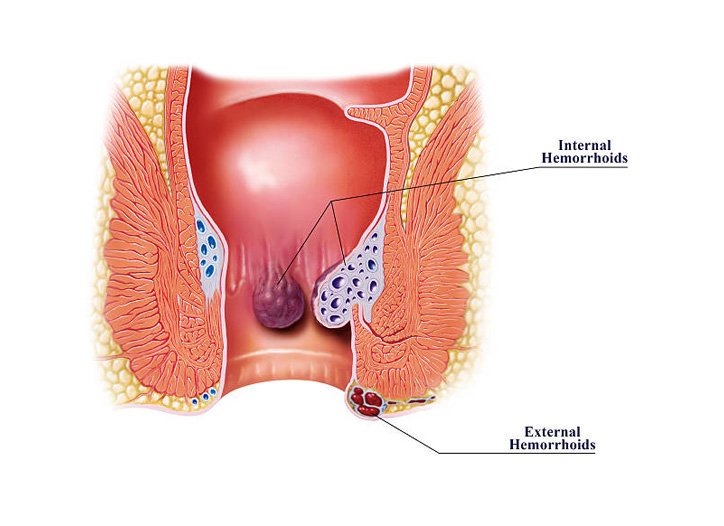Pelvic Inflammatory Disease
24+ years of experience 20,000+ patients treated. Insurance facility available Laparoscopic Pelvic Inflammatory Disease repaire.
What is Pelvic Inflammatory Disease?
Pelvic Inflammatory Disease (PID) is an infection of the female reproductive organs. It usually occurs when sexually transmitted bacteria spread from the vagina to the uterus, fallopian tubes, or ovaries. PID can lead to severe complications, including infertility, if not treated promptly. Effective treatment involves antibiotics and regular medical follow-up.

Types of Pelvic Inflammatory Disease
Pelvic Inflammatory Disease (PID) typically doesn’t have distinct “types,” but it can vary in severity and the parts of the reproductive system it affects. Here are some classifications based on these criteria:
- 1. Acute PID
- 2.Chronic PID
- 3.Silent PID
Acute PID: This type presents with sudden and severe symptoms. It requires immediate medical attention to prevent serious complications.
Chronic PID: Chronic PID can develop if acute PID is not adequately treated. It features milder but persistent symptoms that can lead to long-term damage like infertility.
Silent PID: Often called asymptomatic PID, where the infection causes no noticeable symptoms but can still lead to severe complications, including damage to the reproductive organs.
These variations emphasize the importance of early detection and treatment to prevent long-term health issues.
Treatments for Pelvic Inflammatory Disease
Pelvic Inflammatory Disease (PID) typically doesn’t have distinct “types,” but it can vary in severity and the parts of the reproductive system it affects. Here are some classifications based on these criteria:
Acute PID
This type presents with sudden and severe symptoms. It requires immediate medical attention to prevent serious complications.
Chronic PID
Chronic PID can develop if acute PID is not adequately treated. It features milder but persistent symptoms that can lead to long-term damage like infertility.
Silent PID
Often called asymptomatic PID, where the infection causes no noticeable symptoms but can still lead to severe complications, including damage to the reproductive organs.
These variations emphasize the importance of early detection and treatment to prevent long-term health issues.
Why Lux
Lux Hospitals is renowned for its expertise in treating Pelvic Inflammatory Disease, offering cutting-edge medical treatments and personalized care plans. Our specialized team of gynecologists and infectious disease experts uses the latest diagnostic tools to ensure accurate and timely treatment. With a focus on compassionate care, Lux provides comprehensive support and follow-up to ensure the best health outcomes. Trust Lux Hospitals for dedicated and effective PID management.
Diagnosis of Pelvic Inflammatory Disease
Diagnosing Pelvic Inflammatory Disease (PID) involves a combination of clinical evaluation, laboratory tests, and sometimes imaging. Here’s how PID is typically diagnosed:
- Medical History and Physical Exam: The process begins with a detailed medical history and a physical examination, including a pelvic exam to check for signs of inflammation and tenderness.
- Cervical Cultures: Swabs from the cervix are tested for sexually transmitted infections, such as chlamydia and gonorrhea, which are common causes of PID.
- Blood Tests: Blood tests are used to detect inflammation and infection through markers like elevated white blood cell count.
- Imaging Tests:Ultrasound or other imaging techniques may be used to view the reproductive organs and check for signs of infection or abscesses.
These diagnostic steps help ensure accurate diagnosis and guide the effective treatment of PID.
Causes of Pelvic Inflammatory Disease
Pelvic Inflammatory Disease (PID) is primarily caused by an infection that ascends from the lower genital tract to the upper reproductive organs. Here are the main causes:
- Sexually Transmitted Infections (STIs): The most common culprits are chlamydia and gonorrhea, which can spread during unprotected sexual contact and infect the upper genital tract.
- Bacterial Vaginosis (BV): This condition can alter the normal vaginal flora, potentially facilitating the spread of bacteria to the reproductive organs.
- Invasive Procedures: Procedures such as intrauterine device (IUD) insertion, childbirth, and abortion can increase the risk of bacteria entering the reproductive tract.
- Douching: Douching can push bacteria further into the reproductive tract, increasing the risk of PID.
Understanding these causes can help in taking preventive measures to reduce the risk of developing PID.
Symptoms of Pelvic Inflammatory Disease
Pelvic Inflammatory Disease (PID) may present a range of symptoms that vary in intensity. Key symptoms include:
- Pelvic or Lower Abdominal Pain: The most common symptom, often described as dull or cramping and may be severe.
- Abnormal Vaginal Discharge: Increased discharge with an unusual odor or color.
- Fever and General Malaise: Elevated body temperature and a feeling of tiredness or weakness.
- Painful Urination and Sexual Intercourse: Discomfort during urination and sexual activity.
- Irregular Menstrual Bleeding: Spotting or bleeding between periods or heavier menstrual bleeding.
Early recognition of these symptoms is crucial for prompt treatment to prevent serious complications associated with PID.
Tips to Prevent Pelvic Inflammatory Disease
Preventing Pelvic Inflammatory Disease (PID) is crucial for maintaining reproductive health. Here are effective strategies to reduce the risk:
- Practice Safe Sex: Using condoms during sexual activity significantly reduces the risk of sexually transmitted infections (STIs), which are the primary cause of PID.
- Regular STI Screening: Frequent screenings for STIs can catch infections early, preventing their progression to PID. Both partners should be tested regularly.
- Limit Douching: Avoid douching, as it can disrupt the natural balance of bacteria in the vagina and increase the risk of infections ascending into the reproductive organs.
- Be Cautious with IUDs: While intrauterine devices (IUDs) are safe and effective contraceptives, ensure proper sterile techniques during insertion and follow recommended follow-up practices to minimize infection risks.
Following these tips can help maintain pelvic health and prevent the development of Pelvic Inflammatory Disease.
Conclusion
Pelvic Inflammatory Disease (PID) is a serious yet preventable condition that can have significant long-term effects on women’s health. Staying informed about the causes, symptoms, and prevention methods is crucial. Regular medical check-ups and prompt treatment of any symptoms can help avoid complications. If you’re experiencing symptoms or have concerns about PID, contact Lux Hospitals today to schedule a consultation.
Excellence in Patient Care
We are proud to provide exceptional support to our patients, ensuring they receive the highest quality care and attention. Our award-winning services include:
End to End Patient Care from Lux.
Experienced Medical Staff
Patient-Centered Services
Trusted Health Solutions
Find a Doctor
Expertise you can trust, Meet our esteemed doctors who bring exceptional knowledge, compassion, and innovation to provide top-notch care for your health and well-being.

Dr. Abhishek
MBBS, MS, FMAS, FISCP, DMAS
Consultant Colorectal & Laparoscopic Surgeon, Proctologist
Experience : 25 years

Dr. Samhitha
MBBS, MS, FMAS, FISCP, DMAS
Consultant Colorectal & Laparoscopic Surgeon, Proctologist
Experience : 7 years

Dr Sridhar M
MBBS, MD. Senior Consultant Anesthetist & Critical Care Specialist
Experience : 30 years

Dr. Abhishek Katha
MBBS, MS (General Surgery),
FMAS, DMAS Senior Consultant
& Advanced Laparoscopic Surgeon.
Experience : 25 years
What Are People Saying About Us in Google
Embark on a journey of inspiration and hope with our patient success stories, complemented by informative videos from our dedicated doctors.




 Chat on Whatsapp
Chat on Whatsapp